Jewish Futures Project
The Jewish Futures Project is a longitudinal panel study that has been tracking the lives of individuals who applied to go on a Birthright Israel trip between 2001 and 2009.While the Jewish Future Panel is not a representative sample of Gen X and millennial Jews in the United States, it represents the diversity of Jewish upbringing and experiences of this generation.
The study has been surveying the same group of individuals – those who participated in the program and similar peers who applied but did not go – since 2009. Over this period of time, the panel has been interviewed six times. The study examines how panel members’ lives evolve as they age and the decisions they have made about family formation and engagement in Jewish life. The study examines the extent to which their 10-day Birthright experience shaped their views about Israel and involvement in Jewish life.
Publications
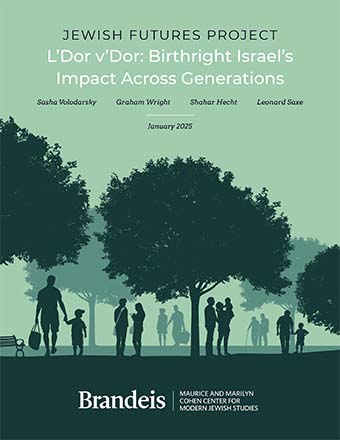
Report
February 2025
The Jewish Futures Project (JFP) has been following a panel of respondents who applied to go on a Birthright Israel trip between 2001 and 2009. The panel includes Birthright participants, and others who applied to the program but did not go. The findings from the JFP’s seventh wave document the stability of Birthright’s impact on many domains of Jewish life, including participants’ relationship to Israel and their Jewish religious and social engagement. A particular area of exploration is Birthright’s impact on choices participants make about the Jewish education and socialization of their children.
Data for the seventh wave of the study were collected through an online survey that took place between May 2023 and January 2024. A total of 2,218 panelists responded to the survey, representing an overall response rate (AAPOR RR2) of 40% (59% for Birthright participants and 31% for nonparticipants).
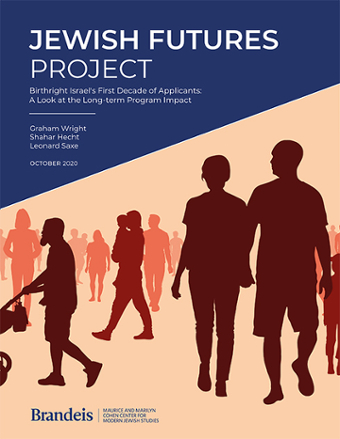
Report
November 2020
The Jewish Futures Project (JFP) has been following multiple cohorts of Birthright participants, and others who applied to the program but did not go, for over a decade. In the sixth wave of the JFP study, we explore whether Birthright’s long-documented impact on connection to Israel and engagement in Jewish life persists, as participants grow older, and the trip recedes further in their memory.
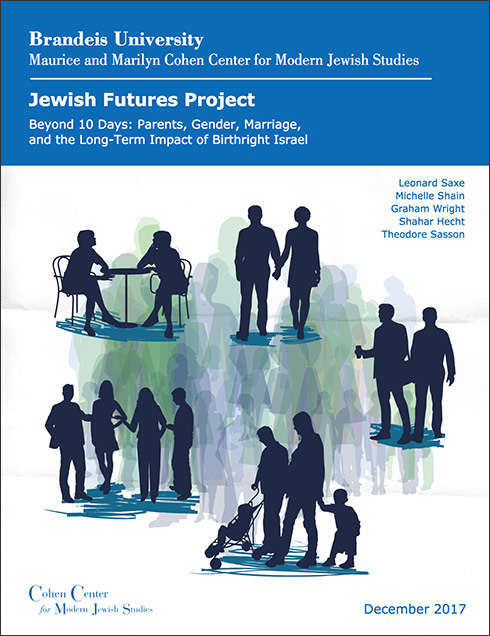
Report
December 2017
The report presents findings from the 5th wave of a longitudinal study of several thousand Jewish young adults who applied to Birthright between 2001 and 2009 and includes an analysis of the ways in which Birthright’s impact manifests in different subgroups: those with one versus two Jewish parents, those whose sole Israel experience was a Birthright trip, participants who are single versus partnered, and men versus women.
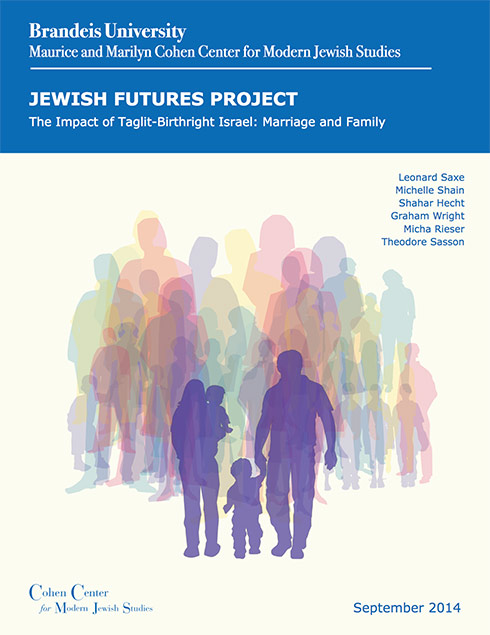
Report
September 2014
The findings in this report were derived from data collected in 2013 for the fourth wave of the Jewish Futures Project, a longitudinal study of Jewish young adults. The expanded number of panelists with families allows for new analyses of marriage patterns and child rearing, including the study of applicant subgroups (e.g., children of intermarried parents).
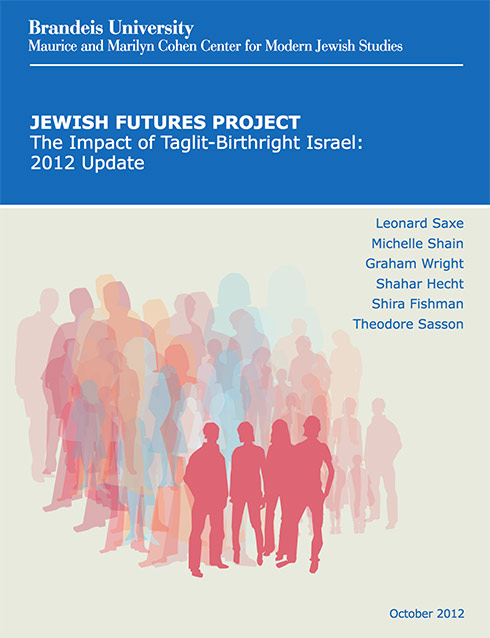
Report
October 2012
The impact of Taglit-Birthright Israel on its alumni six to eleven years after their trip to Israel is examined in this study. The data are derived from the third year of a longitudinal study of Jewish young adults.
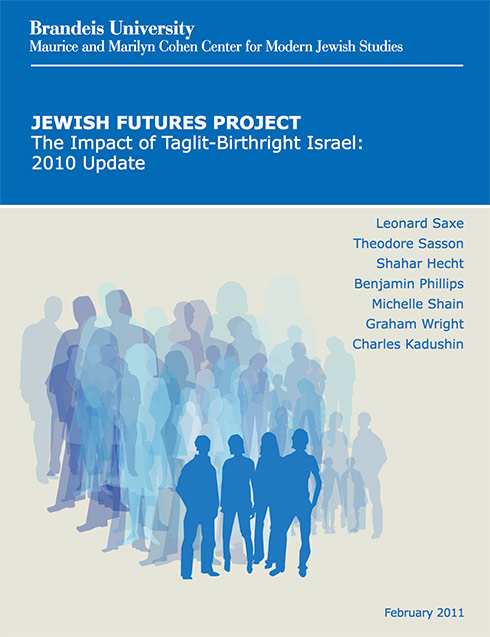
Report
February 2011
This report examines the impact of Taglit-Birthright Israel on its alumni five to nine years after their visits to Israel. The data are derived from the second year of a longitudinal study of Jewish young adults.
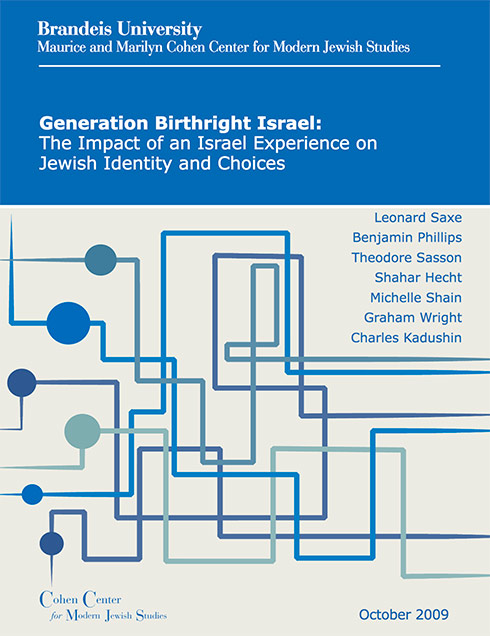
Report
October 2009
This report represents the first long-term study of Taglit-Birthright Israel alumni to document the program's impact on early participants and their decisions and attitudes regarding marriage, community, and connection to Israel.